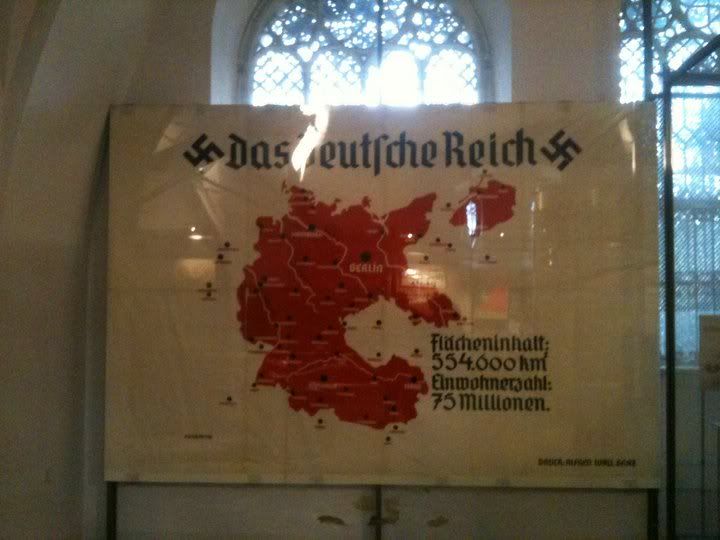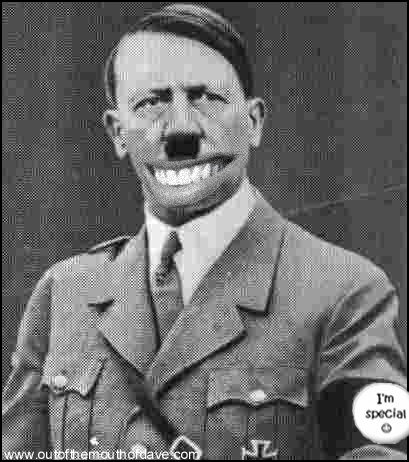Wow, you’ve looked up Wikipedia and read the definition. Congratulations.
Hence my comment about rearmament causing problems for the German economy. The money spent on rearmament was money taken from somewhere else - either through taxation (removing it from the private sector), borrowing (requiring repayment with interest in future) or printing money (devaluing the existing money supply and increasing the likelihood of inflation). All three cause problems for the economy, particularly the former.
This is where it becomes evident that you really don’t know anything about economics. Ever heard of the multiplier effect? See http://www.cnmi-guide.com/info/essays/economics/33.html for a good introduction. The problem with military spending is that you are taking resources away from something that could be used in future to make more money (e.g. retooling a factory) and spending it on something that will make a loud bang and in the process destroy the accumulated wealth. The German rearmament was largely funded with deficit spending, thus it gave a short term boost to the economy as predicted by Keynes. However, because what they spent the money on by and large was unproductive (military equipment, etc.) after a while they ran out of money to borrow and, having not improved the productivity of the economy in the process, had no real chance of getting more. Hence the decision to steal it before the German economy imploded.
Nope. Not only does this violate the laws of Economics, this violates the laws of physics. You are suggesting that a discrete unit - the German economy - can perpetually output weapons for a smaller input than output. That’s exactly akin to a perpetual motion machine - and suffers the same problem. Military production takes money out of the economy and diverts it to non-productive purposes. In most cases, there is sufficient money in the economy that this comes across as a small reduction in growth. However, when this value gets large then the economy simply can’t take it. For the financial year 1938-39, government spending in Germany was 33.5% of GDP, of which 46% went on rearmament. In other words, every year 15% of the value of the economy was being taken out of it and pretty much buried in a hole in the ground. During a phenomenal boom, perhaps, an economy could support this for a while on a peacetime footing. The Soviet Union managed to sustain this for some time by essentially operating on a wartime footing. The way the German economy was structured, it couldn’t. The Nazis didn’t even pretend to fund this in the long term - from about 1933 onwards government spending exceeded income by about 50%. If you think that’s a sustainable way to run an economy, I suggest you spend 50% more than your income and see how far that gets you
They could. Alternatively, they could sell something else and do the same. Exports are pretty much irrelevant here - you’ve got to export something to pay for your imports, and if you’re only making military equipment then that’s what you’ve got to export. Since German military equipment wasn’t (at the time) all that highly regarded, then they will have got a lower price than they would have if they had concentrated on those products which were and still are highly regarded - machine tools, ball bearings and the like.
Nice idea. Shame it’s total bollocks. From 1929-38, German productivity (i.e. the economic value of each hour worked - this is the foundation of all true economic growth as opposed to Keynesian stimulus) grew by about 1.3% per year. Britain grew at about twice this rate. This is further evidence that your claim above is untrue, and in fact the German economy was being fuelled by deficit spending in this period.
China has achieved it’s growth by adopting the economic freedoms of the West without their political freedoms. Other countries have done the same in the past (notably South Korea, Taiwan, Singapore and Chile). This works - for a while - but there are two problems with it.
- When the economic growth stops, the people hold the government fully responsible and are frequently quite violent about it.
- Economic freedom brings the wish for political freedom. Revolutions aren’t led by those with nothing, but those who have something and want more.
That being said, I think the Chinese government are planning to gradually introduce political freedoms to their country from the bottom up. The long Confucian history of China also helps here - expectations are different from those with a Graeco-Roman heritage.



 :mrgreen: otherwise mention a credible source.
:mrgreen: otherwise mention a credible source.

